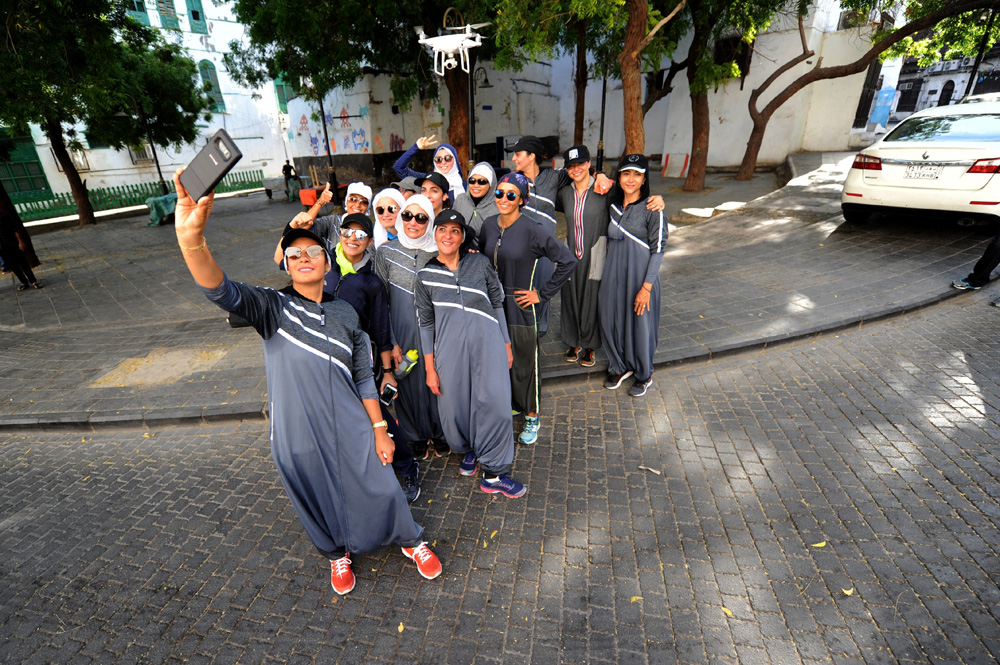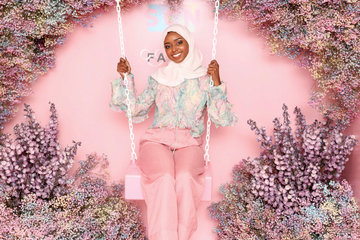
Along with all the reforms that are enabling women to have more freedom over many lifestyle choices that were once banned in the Kingdom of Saudi Arabia, come gaps in the market to further enable women to have what they need in order to adapt and make their mark in Saudi society.
Last September, for the first time, women in Saudi Arabia were allowed into a sports stadium, and now, with women openly talking about and taking to their sporting interests, a Saudi fashion designer says that the demand for her fitness-friendly abayas has never been stronger.
Based in Jeddah, Eman Joharjy came up with her very first sports abaya back in 2007, as she told AFP, “There was a little bit of rebellion, but I designed it for myself, because it’s practical. You zip up and are ready to go.”
Just wanting the ability to go for a run freely, and struggling with the loose hem of an abaya making movement uncomfortable, Joharjy discovered a monumental demand amongst other Saudi women for modest sportswear.
“There is a big demand… Having them in different colours is empowering,” she told AFP in her interview.
The sports enthusiast and designer makes her ath-leisure abayas in natural, breathable fabrics in the colors of her customers’ favorite football teams. The creation of Eman Joharhy’s abayas are enabling more and more Saudi women to take up exercise without any sartorial constraints.
In March, Saudi Arabia also saw its first women’s road race with over 1500 women participating in the 3km race – many wearing sports hijabs and modest wear.
Within a matter of weeks, Crown Prince Mohammed bin Salman took off on his tour of the U.S and told CBS that wearing a hijab or abaya is a woman’s choice, and hers alone.
“The laws are very clear and stipulated in the laws of Sharia: that women wear decent, respectful clothing, like men. This, however, does not particularly specify a black abaya or a black head cover….the decision is entirely left for women to decide what type of decent and respectful attire she chooses to wear.”
The recent reforms have been a shock to the system for many of the elder generations who have been accustomed to more conservative laws, but embraced by a generation of young men and women who want more in way of equal opportunities.
















